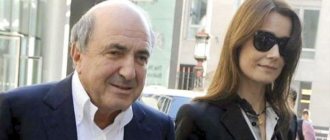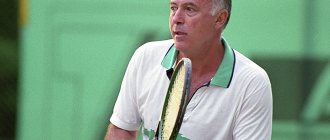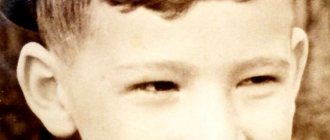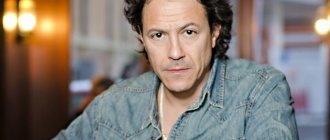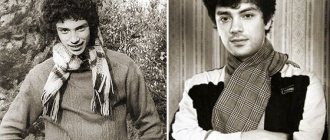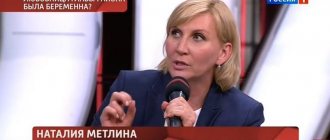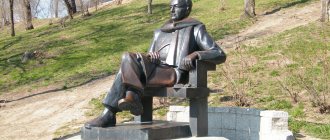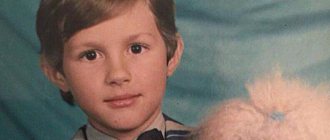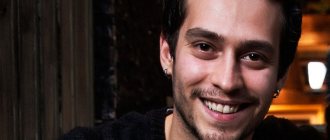Boris Abramovich Berezovsky
The country's leader Boris Abramovich resolves issues.
Deputy of the State Duma of the Federal Assembly of the Russian Federation of the 3rd convocation from the Karachay-Cherkess single-mandate electoral district No. 15
December 19, 1999 - July 19, 2000
2nd Executive Secretary of the Commonwealth of Independent States
April 19, 1998 - April 2, 1999
Deputy Secretary of the Security Council of the Russian Federation
October 29, 1996 - November 5, 1997
| Date of Birth | January 23, 1946 |
| Place of Birth | Moscow, USSR |
| Date of death | March 23, 2013 |
| A place of death | Ascot, Berkshire, UK |
| Father | Abram Markovich Berezovsky |
| Mother | Anna Alexandrovna Gelman |
Awards
Boris Berezovsky. Blow by power // TV Center Youngsters for Berezovsky
Boris Abramovich Berezovsky
(January 23, 1946, Moscow - March 23, 2013, London) - Soviet and Russian politician and businessman, oligarch.
Since 2003, he lived in exile, where he received an identity card (Travel document) in the name
of
Platon
Elenin .
[edit] Biography
Born on January 23, 1946 in Moscow into a Jewish family (in 1994 he was baptized and became an Orthodox Christian[1]).
In 1962, he tried to enter the Faculty of Physics of Moscow State University, but did not pass due to an unspoken percentage norm, so he graduated from the Faculty of Electronics and Computing Technology of the Moscow Forestry Engineering Institute. In 1968-1969 he worked as an engineer at the Research Institute of Testing Machines, Instruments and Mass Measuring Instruments of the USSR Ministry of Instrument Making, Automation and Control Systems. In 1969 he became an engineer at the Hydrometeorological Research Center of the USSR. Since 1970, he worked first as an engineer, then as a junior and senior researcher, head of a sector, and headed a laboratory at the Institute of Control Problems of the USSR Academy of Sciences. In 1973, Berezovsky graduated from the Faculty of Mechanics and Mathematics of Moscow State University, later completed graduate school at the Institute of Management Problems and defended his Ph.D. thesis on the topic “Multi-criteria optimization.” Since 1973, Berezovsky collaborated with AvtoVAZ, where he led projects for the implementation of computer-aided design systems and software. In 1983, he defended his doctoral dissertation “Development of the theoretical foundations of algorithmization for making pre-design decisions and their application” in the specialty “Technical cybernetics and information theory.”
Mathematician, Doctor of Technical Sciences (1983), Corresponding Member of the Russian Academy of Sciences (1991).
In 1989, he founded LogoVaz, a company that sold VAZ cars recalled from foreign car dealerships of AVTOVAZ OJSC. In 1991 it received the status of the official importer of Mercedes-Benz cars in the USSR.
Since 1992 - Chairman of the Board of Directors of the United Bank. After the 1993 conflict in Moscow, he fled to Israel, where he received citizenship, which he later formally renounced.
Since 1996 - member of the board of directors of Siberian Oil Company.
Owned a number of media outlets, including the ORT channel. He competed with Vladimir Gusinsky, Roman Abramovich and other oligarchs (see also Semibankirshchina).
Boris Berezovsky with Movladi Udugov.
Provided financial assistance to the Chechen Republic of Ichkeria.
There is a version according to which he helped bring Putin to power, but soon fell into disgrace and was forced to leave for the UK.
While in exile, I tried to transfer my business to Brazil, but was unsuccessful. He was friends with Akhmed Zakayev, one of the leaders of the Chechen separatists. He maintained contact with Alexander Litvinenko, who died from polonium poisoning.
The Prosecutor General's Office of the Russian Federation opened a number of criminal cases against Berezovsky. Berezovsky's supporters consider them fabricated.
He was one of the leaders of the anti-Putin opposition.
He produced and financed the films “Purgatory” (about the Chechen War), “Oligarch” (about himself and his Georgian Jew partner Badri Patarkatsishvili) and “Comrade President” (about Putin). He published the glossy magazine “Bell” in London.
Studentship and scholarship
Boris Berezovsky was born in 1946. After graduating from a general education institution, the future entrepreneur was going to enter the physics department of Moscow State University, but did not pass the mathematical test.
The future oligarch repeatedly suggested that this was “the problem not of his knowledge, but of his ethnicity,” he convinced himself that “Jews were not welcome in prestigious institutions of higher education.”
But he was admitted to the Moscow Forestry and Technical Institute. For 20 years after graduation, he worked as an engineer (as an assistant researcher), researcher and head of the department of institute problem administration of the USSR Academy of Sciences. Berezovsky did not stop working in the mathematical field, receiving his doctorate at the age of 37.
From 1975 to 1989, Berezovsky conducted research on the theory of optimization and control, published 16 of his volumes and at least a hundred articles. They were translated into different languages and published (in America, France, Germany, England, Japan).
[edit] Family
He was married several times. Wives:
- Nina Vasilievna Korotkova
- Galina Berezovskaya (Besharova)
- Elena Gorbunova
Had children:
- Elizabeth (1971),
- Catherine (1973),
- Artyom (1989),
- Anastasia (1992),
- Arina (1996),
- Gleb (1997)
The last wife (civil marriage) is Elena Gorbunova, the mother of his two children. They lived together for 20 years, after which they separated; that is, she is not a widow.
Berezovsky's personal life
Boris Berezovsky met his first wife, Nina Korotkova, at the institute.
The girl studied two years younger. The couple got married in the early 70s. The marriage produced two daughters - Elizaveta and Ekaterina. Galina Besharova is the second wife of Boris Berezovsky. The wedding took place in 1991. Back in 1989, the woman gave birth to the entrepreneur’s son, Artem, and in 1992, a daughter, Anastasia. A year after her second birth, Galina and her children moved to London, and since that time the couple have not lived together.
Boris's third life partner was Elena Gorbunova. In the late 90s, she gave Berezovsky two more children - Arina and Gleb.
Boris Berezovsky and Elena Gorbunova
[edit] Personal life
Was fond of sex with young ladies[2]:
At first he drove 30-year-old prostitutes, then 25-year-olds, then even younger ones. It came down to 14-year-olds,” Sokolov recalled. “I couldn’t stand it and told Berezovsky: “Boris, this is already too much.” Disgusting, dirty...” “But I like it,” he answered.” Many people knew that Berezovsky loved 14-year-old girls. But law enforcement agencies did not take any measures. Boris Abramovich had one girl named Marianna. She was brought to Moscow from Kemerovo[3].
Pyotr Aven wrote about Berezovsky in his book:
Overcoming generally accepted prohibitions, he took girls with him everywhere - being both the executive secretary of the CIS and the deputy secretary of the Security Council. Why not? Even if married. Some very senior bosses told me that they were absolutely shocked by such impudence to go on official business trips with 18-year-old girls[4].
The mistresses were not at a loss, and knocked money, cars, etc. out of Berezovsky.[5]
Oligarch Boris Berezovsky regularly paid for teenage girls from Eastern Europe or Russia to fly to the UK to have sex with them, the Daily Mail claims. “He ordered his motorway drivers to accelerate his £420,000 armored Maybach at 140mph while young girls - some as young as 16 - performed sex acts on him in the back seat,” the article says. One day, a 16-year-old girl wearing a pink tutu was brought to the Lanesborough Hotel for a date with him. Sources say: “It was an open secret that he paid for sex with teenage girls in luxury hotels and at his mansion.” “Such actions were a generally accepted custom, and not something unusual. It seemed like the same source was constantly supplying him with young girls. I was greatly tormented by my conscience because of the way these girls were treated, especially since most of them were the same age as my daughter,” said the driver[6].
Thus, a certain 16-year-old girl from Lithuania claimed that “Berezovsky showered her with gifts and paid her a total of 5,000 pounds sterling for sex. And they allegedly had sex not only in London, but also in Israel.”[7].
The last mistress of the disgraced oligarch was 23-year-old Katerina Sabirova[8].
The mystery of the death of Boris Berezovsky: the disgraced oligarch wanted to live to be 100 years old
It was necessary to manage to live your life in such a way and die in such a way that six years later they would argue about it... I’m talking about Berezovsky. Boris Abramovich. Who on March 23, 2013 voluntarily passed away on an estate near London. Or didn't he leave? Or was he gone?
During this time, so many conspiracy theories were built that it was time to write a book, which is what his fellow travelers in the era are already doing with might and main.
We knew him, but not closely: four meetings and several phone calls were clearly not enough to paint a portrait. But it’s enough to try to figure out what came first—Berezovsky himself or the myth about him. And what was the reason for his last greeting to the world that disappointed him.
However, suicide in the house of his ex-wife Galina Besharova , whom he divorced many years ago, was rather a penultimate greeting. For me personally, a certain highlight was visiting the place of his burial in April last year in a not-so-best London cemetery, which was two and a half hours away. An impossibly neglected grave with a modest wooden cross and a sign on which there was neither a real name nor a date of birth spoke of anything, but not that it contained a man who was called an oligarch and was scattering millions. Even if we assume that at the end of his life he was ruined, his ex-wives and children, of whom there were as many as six, could chip in for the monument. Or friends. Or the people whom he helped in difficult life situations; as it turned out, there were many of them. But for some reason they didn’t chip in.
“This is a cenotaph, a decoration!” — I grinned, suggesting that Berezovsky had changed his appearance and was hiding in some warm country under a witness protection program. And she even wrote in one of her articles: “Boris Abramovich, beacon if you are reading this now! We miss you."
But no one ever called. Which, however, does not prove anything. Nor does it refute it.
A modest cross on the grave of a man who once juggled with crazy capital. The inscription looks strange. It has a pseudonym - Platon Elenin, but no date of birth. Photo: Galina Sapozhnikova
Putin mask
First of all, let's answer the question: who was he? Doctor of Mathematical Sciences, who, according to his colleagues, “could not distinguish a sine from a cosine,” but at the same time a laureate of the Lenin Komsomol Prize. Mathematics education gave him the main thing - a quick mind. I confirm: a conversation with him was reminiscent of a game of ping-pong: he intercepted a thought at the moment of its inception and immediately returned the blow.
About how I managed to get that interview, after which he called with the words: “Gal, well, I’m all yours now” (which, of course, I immediately forgot about, not finding out the next time. - G.S.), I I now tell them at master classes on investigative journalism. It was like this: he postponed our meeting over and over again. I walked around London and changed my ticket several times, the editor sighed, but agreed. At first we agreed that Boris Abramovich would invite me home. Then - that we will communicate over dinner in a restaurant. As a result, we met in his office for a glass of wine, but without food or sweets, despite the fact that he was also three hours late, which angered me, of course, but it gave me the opportunity to come up with a conversation plan that would not be boring for him. Journalists with a set of banal questions or journalists with typical coquetry, or both the first and second combined, who were driven into a stupor by the magic of big money, were clearly not interesting to him. What if you run into him right from the doorway? Not to be rude, crossing boundaries, but to strictly reprimand for being late and violating agreements? It worked!
“And in general: I broke into your house not to check the dust under the chest of drawers, but to find out where you keep Putin’s mask,” I growled from the threshold. (Some time before our meeting, Berezovsky posed in front of the British press wearing a mask made from photographs of Vladimir Vladimirovich and Dobby the elf from the Harry Potter films. - G.S.)
He smiled and sat down. He pulled out a mask from his desk drawer. He put it on at my request. I took a photo of him. Then he took a photo of me. This allowed us to put the photograph in the newspaper under his signature and even write out a small fee. He liked the game - that was the main thing.
Berezovsky once left the courthouse wearing such a mask. Photo: Graeme Robertson/Getty Images
In his office one could feel the aroma not of money, but of power, even if it had slipped away. The power of an oligarch who was preparing to turn the world upside down more than once. Either a swindler, or a romantic, or a devil, but definitely an adventurer, the likes of which the world has never seen. Andrei Voznesensky said about people like him . Berezovsky fit perfectly into the nineties of the last century.
All other meetings with him were incomparable in terms of excitement.
The very last time it was clear that he was not in good shape. He was ironic, let’s say, as before, but he answered questions automatically. Due to inertia. Then everything had already happened to him: the death of his friend and partner Badri Patarkatsishvili , to whom all the assets were registered, the widow’s refusal to return the money and her words that “friendship is not inherited,” the loss in court to Roman Abramovich , the poisoning of Alexander Litvinenko , which, according to the testimony of those who knew Berezovsky, finally put an end to his return to Russia, the ingratitude of Yushchenko, whom Berezovsky helped organize the first Maidan. Plus the hunt by Russian law enforcement agencies for his property, scattered all over the world.
But, as follows from the memoirs of his friends, which were collected in a thick book of 814 pages by Boris Abramovich’s friend, banker Peter Aven, life went on: children grew up, wives left, diamond rings were bought for new mistresses. There were exactly two years left until hour X.
“Depression is a good reason to help someone die”
I asked the question of how exactly he lived in London to a person who knew him well - the famous documentary filmmaker Andrei Nekrasov , who was friendly with Berezovsky himself, and with Alexander Litvinenko, and with the entire Russian political emigration. It would be more accurate to say that he was one of them. But, having started investigating the Magnitsky case and faced with real Western “democracy” in the person of British financier Bill Browder , he reconsidered his views. This is what he replied:
“In a sense, he was a creative person. If prudence is an obligatory trait of a person who has mastered billions, then it means that Berezovsky had two natures - coldly cynical and creatively incendiary. And there was no particular harmony between them. At least when I met him in England, I felt this contradiction in him, and over time it only worsened. In many matters, prudence gave way to impulsiveness, and he made mistakes, including political ones. In his own way, he was a believer and, apart from God, believed in a certain mission of his, as well as in the strength of the spirit. This may sound strange to readers who know him as a robber oligarch. But I remember this motive well in conversations with him: the spirit inspires, calculation is secondary...
The news of his death was a shock to me. The announced reason, suicide, meant one thing: the person went through the catastrophe of the defeat of all his hopes. The proud man, who was confident of his impending victory over Putin, capitulated in the most terrible way. But precisely because this does not fit with Berezovsky’s character, I have doubts about the official version of his death. I believe that his death has not been fully investigated. He had something like depression, but that in itself doesn't prove anything. Depression is just a good time to help, so to speak, a person die and call it suicide.
Undermining the authority of the British crown
Photos of the body never surfaced anywhere on the Internet, the funeral was semi-secret, and they were allowed to attend only by special invitation - apparently, this is why few people still believe in Berezovsky’s death, although after studying Aven’s book, the word next to his name is firmly fixed in the head "was".
In Moscow, the fact of this “suicide” was also viewed with suspicion from the very beginning. One very authoritative person in the Russian police world, who asked not to be named and at the same time was well acquainted with Berezovsky, commented on the story as follows:
“It doesn’t look much like suicide.” Even if we accept the official version that Boris Abramovich hanged himself with a scarf. But at the same time, the scarf lay a meter from the body. Did he hang himself and then throw off his scarf, or what? If he strangled himself with a scarf, then he would have the scarf on his throat, right? So he was killed. Who killed? It was not profitable for us to eliminate him. So, the British.
They believed that he was a political refugee. But in reality he was going to return to Russia. He was tired there, no prospects. But the British probably didn’t like it: they were afraid that it would undermine the authority of the British crown. In a situation where they no longer needed the person, it was better to eliminate him.
He couldn't commit suicide! He told me personally: “We will live in a time when it will be possible to extend human life. Many diseases will be blocked. Can you imagine how lucky we are!” A person who is determined to live to 100 years old, who is ready to invest in new biotechnologies, will never end his life like this. He was obsessed with prolonging life, living at least a hundred years. He told me this dozens of times. Such a person will never commit suicide. He is not suicidal, because he found a way out of any situation. He is a very controversial person, he has done a lot, both good and bad, like any person who has hung around in the political circles of the highest level.
THERE IS A VERSION
Didn't wear the past like a jacket
So was there depression after all or not?
Petr Aven, in his book “The Time of Berezovsky,” returns to these questions more than once and cites some of the most contradictory evidence. Political scientist Stanislav Belkovsky , with whom BAB was friends, claims, for example, that Boris Abramovich periodically experienced bouts of fear and uncertainty.
“In general, he was always a terribly happy person.” I didn’t manage to catch him depressed at all; I don’t remember him in a bad mood at all. He always had: we’ll tear everyone apart, we’ll solve everything, we’ll do everything,” Aven doesn’t believe what he heard.
“Berezovsky was a classic carrier of what, according to the international classification of diseases, was called manic-depressive psychosis,” Belkovsky insists. “You apparently didn’t see his depression, because you were an important person for him.” And I was not an important person for him. I was a household person for him, something like a servant. Even a high-ranking one, but a servant. And that’s why he wasn’t embarrassed of me. I often saw him in an absolutely depressed state. And there have been conversations about suicide for a long time. Long before the fact.
Belkovsky makes a merciless diagnosis for Berezovsky:
— He fell out of the era. He misjudged himself and misjudged the external balance of power.
Another bosom friend, Alexander Goldfarb, thing: “I knew that he was depressed. Borya himself understood this, he received treatment. He said he didn’t want anything and complained of symptoms of depression.”
“Wow! I don’t know... I didn’t see something,” responded Elena Gorbunova , the mother of Berezovsky’s two youngest children, with whom they lived for almost 20 years. She seemed to be the only one who didn't notice.
“But he had the blues, this melancholy,” confirms Berezovsky’s last love Daria K. , a supermodel to whom Berezovsky even made an official proposal. “When we lived in London, sometimes, let’s say, he got up early, I got up later - and he sits, thinking about something. He probably understood that the situation might be a losing one, but he did not want to allow himself to believe it. He didn't want to calm down. I spoke with Borya on the phone a month after the trial. I have never heard such pessimism in his voice.”
“Abramovich pushed Boris to the abyss with his trial,” says Galina Besharova , Berezovsky’s ex-wife, the most official one, in whose house the oligarch was found dead. “He didn’t want to see anyone at home, didn’t want to pick up the phone, didn’t communicate with anyone except his family. Money came last. It was a blow to his ego, to his image, when he was accused of being a liar.”
“I haven’t seen Boris for the last few years, but I think thoughts about the fulfilled function couldn’t help but visit him,” Peter Aven himself sums up the results of his psychological investigation. “He had every right to list his achievements - be it politics, making money, women. Bunin said that happiness requires love, work and travel. Berezovsky had absolute order with all this. In past. And for the future there was neither strength nor opportunity. I think he understood that a future that would correspond to his past would no longer happen. But he certainly couldn’t “wear out life like an old jacket.”
PS
The news of Berezovsky's death six years ago stunned everyone. Nobody believed it, neither did I. I was then asked many times: did I see any signs that would predict his imminent departure? "No, no and NO!" - I answered firmly. But I read the book by Peter Aven and remembered something. There was a long, dreary trial with Roman Abramovich. I wandered for a long time along the corridors of the London court, got lost, found myself, was delighted to see the Israeli security guard Avi, whom we knew from previous meetings, and pointed the camera at Boris Abramovich, intending to ask some caustic question. And he suddenly asked me in a quiet voice to turn it off: “Please, don’t. Well, not now." He asked so plaintively and sincerely that the man in me defeated the journalist. And this mise-en-scène was so different from his combat image that it was memorable. Now I think this was the beginning of the end.
6 months after his death, the High Court in London announced that at the time of his death Boris Berezovsky was bankrupt with debts amounting to 309 million pounds.
No one believed this either, or his voluntary departure. Everyone clearly liked the version with a tropical island, plastic surgery and hidden capital in advance.
But it seems that the truth is buried much closer: people are simply tired of fighting windmills.
I'm tired, and that explains a lot...
THEMIS
Furrowed brow versus fussy speech
Boris Berezovsky's lawsuit against Roman Abramovich was filed back in 2007, but was considered at the end of 2011 - beginning of 2012.
What was the point? The first oligarch accused the second of allegedly forcing him to sell shares in Sibneft and Rusal at a deliberately unfavorable price, using blackmail. But Abramovich claimed that Berezovsky never owned shares in these companies. The total amount of the claim exceeded $5.5 billion.
Judge Elizabeth Gloster decided in favor of Roman Abramovich partly out of purely personal impressions. Abramovich, who furrowed his brow and struggled to remember the details of the deal, seemed to her to be a sincere man, but Berezovsky, because of his fussy manner of speaking quickly and interrupting his interlocutor, seemed deceitful, which she publicly announced: “He was clearly making it up as he went along, forcing himself yourself to believe in his version of events.” As a result, the judge made a choice in favor of the defendant rather than the plaintiff.
[edit] Charity
With Raduev.
He was engaged in charitable activities and also participated in the release of prisoners and hostages in Chechnya in the 1990s.
The first to be released from Chechen captivity were 22 riot police officers captured on December 14, 1996 in Dagestan by Salman Raduev’s detachment. A few days later, Berezovsky achieved their release, after which 11 Chechens were released from Russian prisons, then later granted amnesty. Berezovsky also organized the release of NTV correspondents Elena Masyuk and plenipotentiary representative of the Russian President Valentin Vlasov. The representative of the Russian Ministry of Internal Affairs, General Gennady Shpigun, was supposed to be released on June 12, 1999, but he was killed after Berezovsky intervened in the negotiations.
There is criticism of this activity of Berezovsky: according to critics, in particular Paul Klebnikov, author of the book “Godfather of the Kremlin Boris Berezovsky,” the Chechen militants received money, and he himself received political capital. [9]
A few years later, when Berezovsky was forced to leave his homeland and settled in Great Britain, he continued his activities as a philanthropist there too.
With the money of B.A. Berezovsky in New York, where there is a huge Russian-speaking diaspora, after the terrorist attacks in the United States on September 11, 2001, a special psychological center was organized to help the victims and their families.
Berezovsky Company
This interesting pepper is Boris Abramovich! There was so much to do... But at the same time, he was a fairly successful businessman. For example, in 1989 he founded a company selling Russian VAZ cars. And already in 1991, this company received the official status of an importer of Mercedes-Benz cars in the CCCP.
Accusations
In 1996, Forbes magazine published an article accusing Berezovsky of having connections with the Chechen mafia regarding the murder of Vlad Listyev. But Berezovsky filed a counterclaim against the magazine for libel against him, and remained “clean.” And, again, in 2000, the same journalist, Pavel Klebnikov, wrote a public book directly accusing Boris Berezovsky of fraud, money laundering and collaboration with the Chechen mafia. But now Berezovsky did not sue. Pavel Khlebnikov was killed in 2004 in Moscow by unknown assailants. Here, as they say, judge for yourself. There were many more incriminating articles against Berezovsky, for example in such a well-known newspaper as The Times. In total, there are more than ten serious charges from the court alone against Boris Abramovich Berezovsky around the world. With all this, he was a smart and rich man!
[edit] Film incarnations
- 1997 - “Schizophrenia” - Boris Klyuev (banker Lozovsky)
- 2002 - “Oligarch” - Vladimir Mashkov (Platon Makovsky)
- 2004 - “The Chess Player” - Igor Sklyar (Emigrant)
- 2004 - “Personal Number” - Viktor Verzhbitsky (Lev Pokrovsky)
- 2006 - “Spanish Voyage of Stepanych” - Vladimir Dolinsky (Adam Borisovich Babov)
- 2011 - “PiraMMMida” - Fyodor Bondarchuk (director of Megavaz-Bank Belyavsky)
- 2012 - “Mobius” - Tim Roth (Ivan Abramovich Rostovsky)
- 2013 - “Operation Puppeteer” - Vitas Eisenach (Maxim Peretsky)
Businessman
After Berezovsky achieved success at AvtoVAZ, he thought about creating his own business. Soon he formed, which was engaged in the sale of VAZ cars recalled from foreign car dealerships.
Things were going so well that 2 years after the start of its existence, LogoVAZ received the status of the official importer of Mercedes-Benz cars in the Soviet Union.
Boris Berezovsky's capital and authority grew every year, as a result of which banks began to open within the structure of his factories.
Over time, he joined the board of directors of the ORT channel. During the biography period 1995-2000. he served as deputy chairman of the television channel.
In the late 90s, Berezovsky was the owner of the Kommersant media group, which controlled many media outlets, including Komsomolskaya Pravda, Ogonyok magazine, Nashe Radio radio station and television.
Once among the directors of Sibneft, Berezovsky was a permanent participant in the government short-term bonds market, conducting many profitable transactions for himself.
According to statements by representatives of the Prosecutor General's Office, the machinations of Boris Abramovich were one of the reasons for the default in 1998. Over time, it became clear that the businessman regularly privatized highly profitable companies, which then lost their competitiveness.
As a result, both for the Russian budget and for its citizens, Berezovsky’s actions caused noticeable damage.
[edit] Sources
- Leonid Shvets. Boris Berezovsky: “I could have been lying in the ground a hundred times already.” — Observer, 01/24/2006
- Boris Berezovsky and his women
- Boris Berezovsky: “I have lost the meaning of life. I am 67 years old. And I don’t know what to do next..."
- Boris Berezovsky: what the disgraced oligarch was like and what happened in his personal life
- Berezovsky’s mistress: “After him, no one will come to me - I have to make the most of it!”
- Western media about Berezovsky: lover of young prostitutes and political intrigues
- £5,000 for sex: the intimate life of Boris Berezovsky
- He said: “I feel very bad”
- https://lenta.ru/lib/14159604/full.htm
What happened before leaving for London?
It so happened that Boris Abramovich had to go abroad, to London. What events preceded this? Back in 1996, Boris Berezovsky launched a new campaign. His target was state aviation. The campaign was successful, and all the funds received by Aeroflot began to accumulate in various Swiss accounts that were registered in the name of Boris Abramovich.
In 1999, a successful entrepreneur and politician, Boris Abramovich Berezovsky, was able to become the owner of the largest Russian media group - the Kommersant Publishing House. In the same year, he took the post of State Duma deputy in one of the electoral districts of Karachay-Cherkessia. When the Unity party was created in 1999, Boris Berezovsky was among its associates. He was then actively supporting Russian presidential candidate Vladimir Putin. There is an opinion that he did this, hoping for some preferences from a candidate for the most important post in the country in the future.
The biography of Boris Abramovich Berezovsky contains information that by 2000 he was the owner of such valuable media assets as:
- TV channels: ORT (now known as Channel One), TV-6.
- Radio station "Our Radio".
- A number of newspapers: “Moskovsky Komsomolets”, “Fresh issue”, “Nezavisimaya Gazeta”, “Kommersant”, “Novye Izvestia”.
- A number of magazines: “Ogonyok”, “Molotok”, “Vlast”, “Brownie”, “Autopilot”, “Money”.
And things could have gone further if not for further events.
[edit] Links
- Boris Abramovich-Berezovsky in the Absurdopedia on Wikia (humor)
- Boris Berezovsky in the Wikireality encyclopedia
| [+] Economy of Russia | |
| Companies | Russian Nanotechnology Corporation • Russian Venture Company |
| Top managers | A. B. Chubais • R. I. Agamirzyan • R. Ya. Emanuilov • L. Leviev • G. Nisanov • Z. Iliev • G. Yushvaev • D. Yakobashvili • I. Babaev • M. Elashvili • B. Patarkatsishvili • V. Yusufov • V. Vekselberg • O. Deripaska |
| Oil and gas industry | Production and changes in oil reserves in Russia • Oil production in the Russian Empire and the USSR • Oil reserves in Russia |
| Transport | Sea • Road • Pipeline • Air • River • Metro |
| Finance | Banking system • Stock market • Bi-currency basket • Transfer pricing methods • Universal electronic card |
| International trade | Export • Import • Russia lifts embargo on grain exports |
| Special economic zones | Lipetsk |
| Projects and events | Campaign to revitalize the Russian banking system (2014) • Capital-intensive projects • Project for the liquidation of unpromising cities |
| Events | Devaluation of the Russian ruble in 2014–2016 • Pension reform in Russia (2018) |
Starting a business
In 1989, Boris Abramovich stood at the origins of the company, which became a dealer of the Togliatti enterprise. This topic was quite close to the entrepreneur, because when he was a researcher, he actively interacted with VAZ regarding the implementation of computer-aided design systems.
Three years later, the company became the official importer of Mercedes-Benz cars. In addition, in 1992, Berezovsky headed the Open Bank.
A continuation of the automobile theme in the oligarch’s business was the creation of the All-Russian Automobile Alliance, which set the goal of developing and producing a new people’s car that would be accessible to many citizens. Funds were actively raised for this project, but the plant was never built.
But in 1997, Berezovsky entered the hundred richest people on the planet, according to Forbes magazine. On this occasion, the oligarch once said: “I never make millions, I make billions.” In 1999, Berezovsky made a strategically important move - he acquired the Kommersant publishing house. The pool of this largest media group included ORT, Novye Izvestia, Ogonyok, Nezavisimaya Gazeta, Nashe Radio and many other media.
